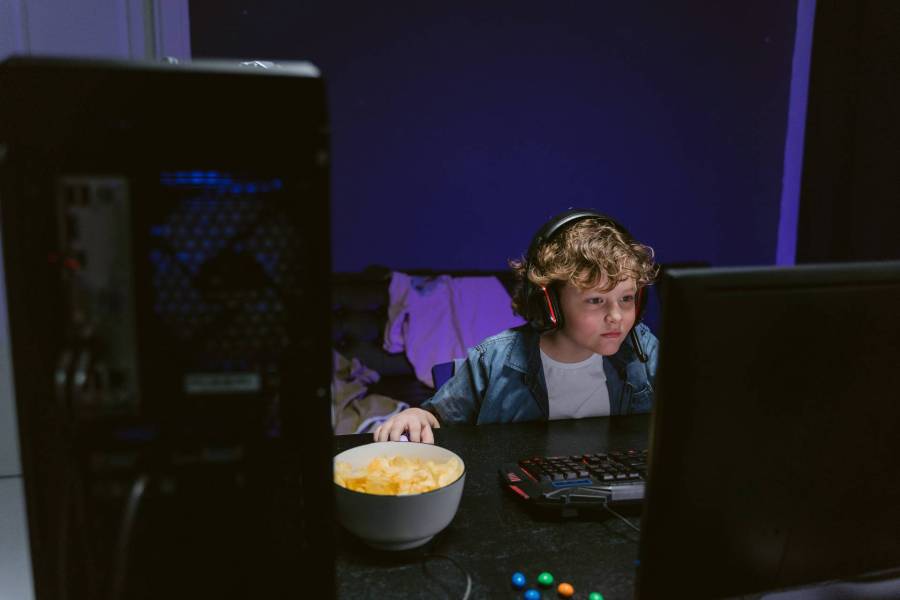The old saying is that software will eat the world. In reality, digital has eaten humanity. We are so consumed today in our digital lives that nearly every trending story pertains to the digital space — NFTs, Defi, cryptocurrency, social networking, cloud gaming, SaaS, metaverse, OTT streaming — all related to the ones and zeros that our lives have become so dependent upon.
It’s not that digital is evil or digital is good — digital is what we make of it. Digital can be used for whatever purpose we humans set out to use it for. Like most things humans create, it’s a tool, how it functions and the role it plays in our society and for humanity is determined by the end-user. Digital living has been so instrumental in our lives, it enhances how we enjoy life, extends how long we live, allows us to connect in more ways than ever before with those around the globe. Simply put digital life makes life better.
But everything being digital also has its cons. It’s created a new generation of humans, one that’s lost its sense of what it means to live in the real world. This new generation is the digital zombie generation, where digital consumes and dominates every aspect — nearly every waking moment in some cases — of someone’s life. TikTok, Snapchat, Facebook, Instagram, Fortnite, Runescape, World of Warcraft, Destiny, Madden, Skype, Zoom, Netflix, Hulu, Disney Plus; many people never stop staring into the abyss of the digital space and when they do it’s usually in their pockets waiting for them to hop back in. It’s so striking that just this week Facebook canceled their Insta project targeted at our youth after considerable concerning reports surfaced regarding how much they know about how detrimental Instagram is to our youth, in particular young girls.
As a father of 3 kids ranging from 9 to 13, I’ve recognized many of these trends and have recently realized that what the world needs isn’t another solo solution or platform that disconnects us from the real world in which we live — the one where we can use all 5 of our senses at once. What the world needs, rather, is a co-reality solution and platform that enable us to come together to engage and collaborate. The co-reality experience is one in which people can game together, work together, build together, play together in both the physical and digital realms at the same time.
Co-reality is an extension of what Dan Ostrower wrote about in 2014, in his article titled The War For Our Digital Future: Virtual Reality vs Integral Reality. Dan defines Integral Reality the following way:
Integral Reality intertwines the wonders of the digital within the physicality of real things. With digital components embedded and invisible within objects, Integral Reality won’t separate us from the real world but instead promises to create emotionally engaging experiences with it.
Integral reality falls on the broad spectrum of Mixed Reality. Where Virtual Reality experiences like those created by Oculus or seen in movies like Ready Player One fall on one end of the mixed reality spectrum, Integral Reality is situated on the complete opposite end, with Augmented Reality falling in the middle. The interfaces today for Integral Reality are all tangible user interfaces, whereas Virtual Reality is primarily controller-based, and Augmented Reality is generally gesture-oriented. This concept of Integral Reality isn’t something entirely nascent, there are a number of experiences and solutions that have been built in the space so far.
As CEO of TapTop (aka Blok Party), our company was fortunate enough to have been backed by the leading Venture Capital firm investing in the new Integral Reality experience — Alsop-Louie. At TapTop, we built the world’s first commercially available tabletop gaming console, which fused the physical with the digital and created an experience whereby families and friends could gather around the table to play games and interact with physical and digital objects together. Our interfaces activated the majority of our senses: we used a large format LED screen with amazing first-party art and graphics for games; we were one of two non-Amazon devices with Alexa SmartScreen built-in for voice-based games (Facebook Portal being the other), we used amazing sounds to bring the games to life. The premise of TapTop was that we digitized the most popular board games for today’s mid-and hard-core board gamers including Catan, Ticket to Ride, Machi Koro, Space Base, Pandemic, Spirit Island, Codenames, and many more. In addition to purely digital games that could be played in a co-reality, we shipped over 5,000 units of physical toys, playing cards, and dice that when in contact with the TapTop screen could be detected via RFID interaction with our patented RFID screen sensing technology. Unfortunately, the global supply chain woes and semiconductor shortages put a hamper on our efforts and halted our plans.
We weren’t the only Integral Reality company in the Alsop-Louie portfolio and in fact, Stewart Alsop once said of Gilman Louie that “He’s beginning to see the whole world in terms of 3D, where everything might be interconnected online and offline.” That bridge between the physical and digital realms are being created by their portfolio companies the likes of Niantic who created the hit phenomenon Pokemon Go, Hover which enables contractors to use a smartphone to create an accurate 3D model of a home3D home construction, and Mixed Dimensions which brought digital avatars and game characters to the physical realm using some of the most advanced 3D printing and in-game capture software whereby full in-game scenes can be collected physically, Drop Kitchen human-computer interaction for kitchen appliances, and Shape Labs which develops a scale whereby users scan, track, measure, and compare their body shape in photorealistic 3D.
Other firms are already operating in the space and have also received billions of dollars of investment from the biggest names on Sand Hill Road. Self-driving cars like Waymo, robotic kitchens like Chef Robotics, human-computer interfaces like Nueralink, experiential museums and entertainment centers like Two Bit Circus, and humanoid robots like Sophia the Robot from Hanson Robotics. Investors, whether they realize it or not are enabling the future of integral reality, and more importantly the co-reality product, platforms, and solutions I think the world needs so critically right now.
The co-reality future that I envision is one that brings people back together, elbow-to-elbow, face-to-face, to bond, build lasting memories, and share amazing physical-digital experiences. The fact is, today’s society is more connected than any point in the history of humanity, yet we are more disconnected and divided than ever before; so much so that we are losing our humanity. I believe co-reality, multi-user, in-person experiences can and will save our society and humanity.



















